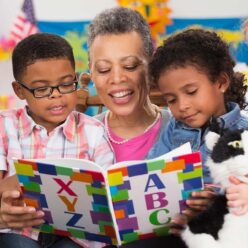
Introduction
History of your topic
The rise in diversity necessitates that school administrators set up procedures to guarantee that children from migrant backgrounds participate equally. Bias, fear, a lack of cultural understanding, a lack of professional procedures, and a lack of appropriate support structures are some of the issues that inhibit culturally responsive practices. Student social and emotional development suffers when teachers are unable to provide flexible curricula that are representative of all children. They lack self-awareness, self-management, social awareness, relational skills, and the ability to make responsible decisions since their prior knowledge is not taken into account.
Students get upset, which causes them to put off learning, be reluctant to participate, skip class, detest the teacher, and act out in class, which interferes with their own and other students’ ability to learn. When students are not fairly included or represented in the classroom, it also impacts society. Lack of teamwork, ineffective communication, conflict, and social marginalization are present.

